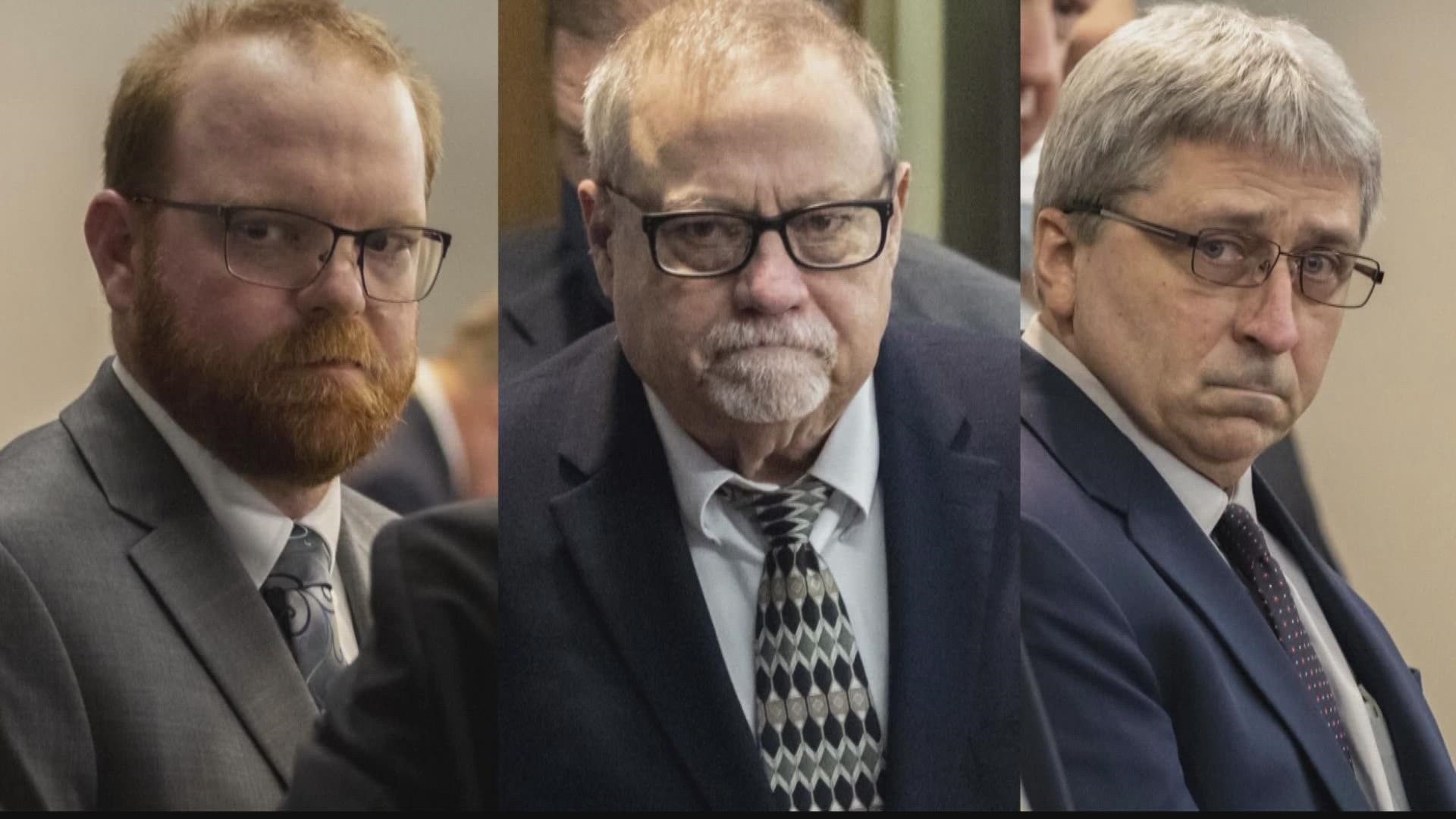BRUNSWICK COUNTY, Va. — Jurors heard graphic testimony in federal court Thursday as three men stand trial in the killing of Ahmaud Arbery.
Two members of the GBI were among those called to the stand to talk about the wounds Arbery suffered and the evidence found at the scene after he was chased down and shot in Brunswick.
The federal trial is to determine if the crime was motivated by hate. Prosecutors are trying to prove father and son Gregory and Travis McMichael and their neighbor William "Roddie" Bryan killed Arbery because of the color of his skin. The three defendants are white, and Arbery is Black.
One of the biggest moments was when GBI trace evidence analyst Anne Kisler-Rao testified she found fibers consistent with Arbery's shirt on Bryan's truck, which she said indicates the truck hit or made contact with Arbery during the chase.
Glynn County Police Officer Robert Rash testified Arbery's death was the first major crime to happen in Brunswick's Satilla Shores neighborhood. Rash said Arbery was captured on surveillance video going through a home under construction, but other people went through the home at various times, including a white couple.
Rash said he shared the video with Gregory McMichael because of McMichael's former law enforcement experience, but Rash thought McMichael would call 911 if he witnessed a possible burglary and not chase down Arbery with guns.
Dr. Edmund Donoghue, the medical examiner who performed Arbery's autopsy, testified Arbery had three significant wounds. One of them punctured his lung and most likely caused pain and trouble breathing, and another bullet struck an artery, Donoghue said.
Marcus Arbery, Ahmaud Arbery's father, said he wanted all details of the case to come out in federal court.
“Why should we try to make it easy for them when they didn’t make it easy for him? That’s why me and his mother agreed to let them be accountable to the fullest of the law," Arbery said.
Some of the evidence presented during the federal trial wasn’t included in the state trial, including racially-charged texts and social media posts from all three defendants.
“It feels different. There’s a lot of stuff the state didn’t bring up that those McMichaels did like all that racial stuff. That’s why they really didn’t want to go to trial because they didn’t want the world to know what kind of monsters they really was and how racial they really are," Arbery said.
Arbery hopes the federal trial sends a clear message.
“I just hope that the next person that thinks they can kill people racially because they’re racist, they think about things before they do it," Arbery said.
One of the jurors asked if federal funds are available for counseling after seeing autopsy photos in the courtroom. The judge said yes.
The federal trial is expected to last seven to 10 days. All three men were convicted in Arbery's death during a state trial.

